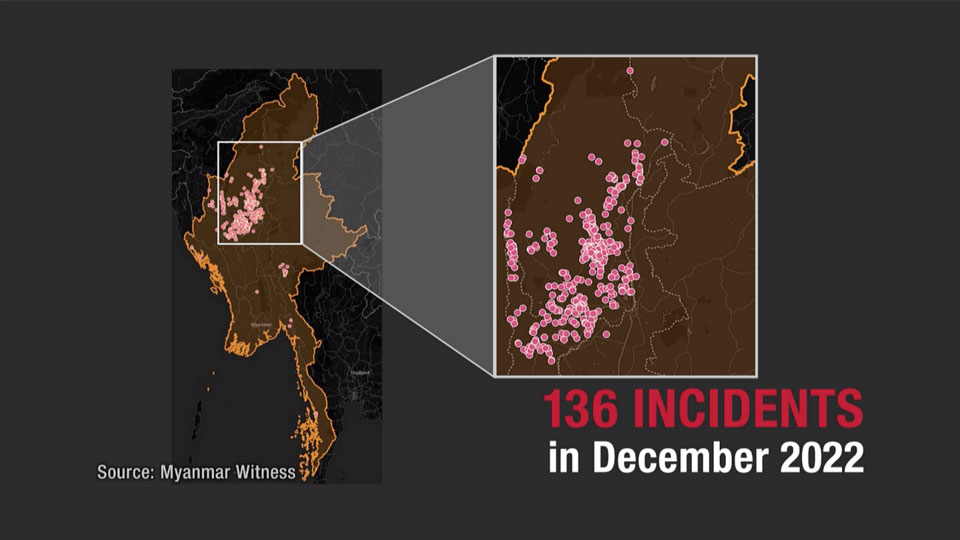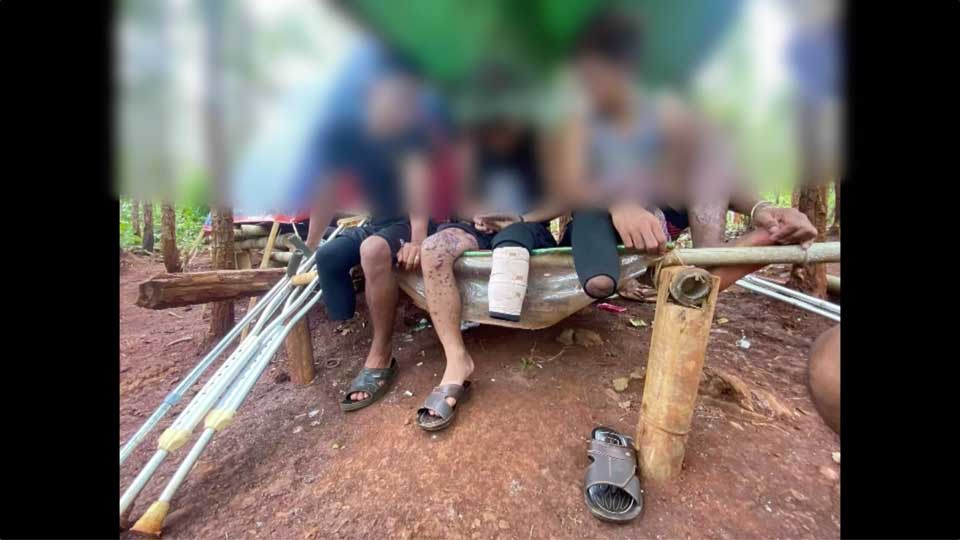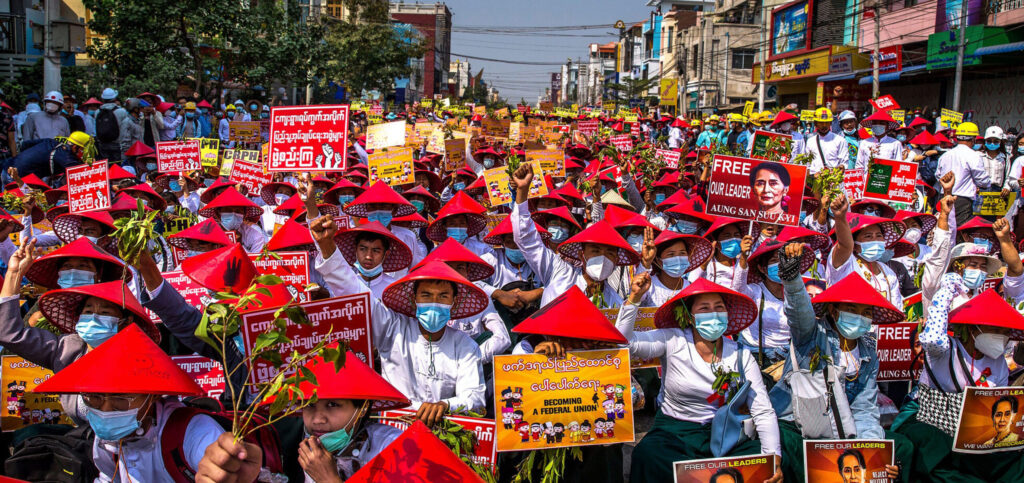The people of Myanmar have suffered two full years of chaos and bloodshed, with fears now that the situation could grow even worse. The military junta that seized power in 2021 has declared vast swathes of the country under martial law.
Humanitarian groups estimate thousands of civilians have died in brutal crackdowns against resistance. The number of internally displaced people has surged past 1.2 million.
In Japan, a Myanmar couple is acting as a conduit for information about what’s happening back home, sharing stories with the world about the horrors that are taking place. Win Kyaw and his wife Mathida are based in Tokyo, but with a network of informants across Myanmar, they are a valued source for NHK World including its flagship television news program “NEWSROOM TOKYO”.
Maintaining the fight
The couple was invited to a corporate donor’s office in Tokyo during January to share images they have collected that depict the human toll of the two-year conflict. They are concerned that people in Japan are losing interest.
“Why must these young people fight and be killed by the military?, asks Win Kyaw. “We’re worried everyone will forget about Myanmar, while the military does whatever it wants, and that if this goes on, our country will be erased from the map,” adds Mathida.

Military targets resistance strongholds
With a broken promise for an election this year, an extension of the ongoing state of emergency, and 44 townships under martial law, the situation in Myanmar appears to be worsening.
In January, the army’s top leader said military rulers would strive to hold a “free and fair” election, and a census was conducted to identify voters. But the following month, as the second anniversary of the coup d’etat rolled over, the general election was called off.
In addition to an extension of the ongoing state of emergency, martial law was imposed on 37 townships, mainly in areas where armed resistance group People’s Defense Force (PDF) has a presence.
Those 37 add to seven townships that were placed under martial law in 2021, six of which are in the city of Yangon and one in Chin state.
People charged with treason will be tried in a military court. Many have already been sentenced to indefinite imprisonment and death.

Scorched-earth tactic
People who resist the military continue to pay a heavy price.
Win Kyaw and Mathida received a photo taken by a local resident of a message allegedly written by military personnel on a white board at a school in Sagaing. Residents there say the military often comes looking for PDF members. Even if they can’t find any, they burn down houses.
The message carried a warning: “The more you support the PDF, the more you will suffer in this fight… and the more houses will be burned down.”
The army has been waging a scorched-earth campaign in the Magway and Sagaing regions, which are both subject to the newly imposed martial law decrees. Human rights watchdog Myanmar Witness maintains 136 mass burnings took place in those two locations during the month of December.
The military continues to crack down on the PDF, which is estimated to have at least 65,000 members. Most are aged in their 20s and 30s.

Information from inside Myanmar is becoming increasingly scarce. Win Kyaw and Mathida say the military is blocking the internet in Magway and Sagaing. They’ve been trying to get in touch with a young man who was a teacher in Sagaing.
He used to deliver aid supplies to displaced people, but his own home was burned down in December, followed by his entire village one month later. The couple hasn’t heard from him since.

“Right now, the people in villages can’t go about their lives in peace,” says Win Kyaw. “The PDF members are fighting so hard.”
Living with landmines
The couple is concerned about the rising number of young people falling victim to landmines. The military is accused of burying landmines in and around homes when it takes over villages and drives out residents.

Myanmar is not a state party to the Mine Ban Treaty. According to UNICEF, more than 650 civilians in the country were killed or injured by landmines and other explosive remnants of war between February 2021 and December last year.

Human rights organization Amnesty International warns that the military is systematically laying landmines, warning they will cause enormous damage for many years to come.

Because there are no special tools available to remove land mines, people are using whatever is at hand. According to the PDF, it is estimated that close to 100 fighters have been maimed so far, many of whom face a long rehabilitation to learn to walk on an artificial leg.
A dream worth fighting for
A nurse who works in the PDF medical corps has been able to stay in touch with Win Kyaw and Mathida. She reports that casualties are increasing by the day.
“War isn’t a game, so naturally the casualties mount as time goes by. All the soldiers want to get back to the frontlines once they have recovered,” she says.
When Win Kyaw asks her what she is fighting for, she replies: “For the freedom to do what we want. That’s the dream we’re fighting for. Our leaders should be chosen by the people. And we should be allowed to point out their faults. I don’t see any reason to tolerate a situation in which those things can’t be achieved.”
The nurse recently began teaching children, many of whom have been unable to attend school since the coup. Win Kyaw and Mathida say her approach can help to ensure a bright future for the next generation.
It’s the determination of young people that inspires Win Kyaw and Mathida to keep up their work. The couple hopes that it will eventually become impossible for the military to maintain control.
“We don’t want more young people losing their lives. We want to end this fight as soon as possible. And we want the whole world to support our young people in their fight for democracy,” says Win Kyaw.
Source: NHK News


